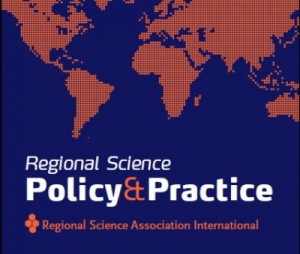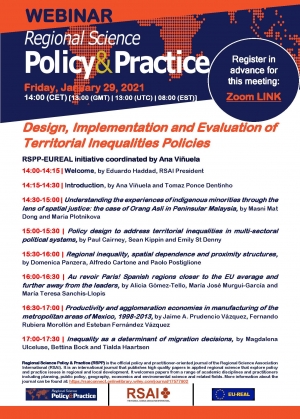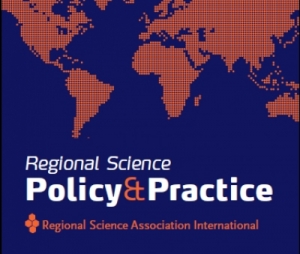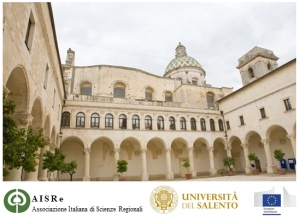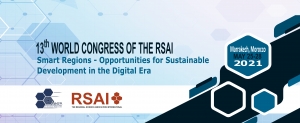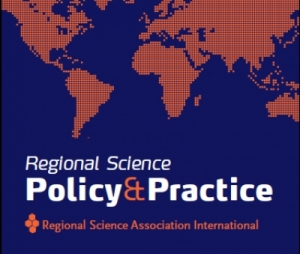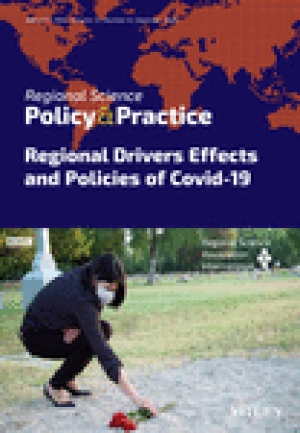Council
Elisabete Martins
TU Wien: Full professor for Urban and Regional Research
University Professor
for the specialist field of urban and regional research
This is a professorship regulated by § 98 of the 2002 Universities Act (UG).
The position as professor for Urban and Regional Research has been allocated in TU Wien’s development plan to the research focal areas “Energy and Environment”, “Information and Communications Technology” and “Additional Fields of Research”.
We are looking for a personality who has already succeeded in making outstanding scientific achievements in the field of urban and regional research. Candidates are expected to have international-level expertise in relevant theoretical approaches and urban and regional research concepts. Other essential requirements also include having a sound knowledge of the broad range of methods used in quantitative urban and regional analysis. Candidates should be well-versed in designing and applying digital methods (such as in the field of Geographic Information Systems) for visualizing, explaining and modelling spatial structures, developments and transformation processes. Knowledge of spatial development policy and participation in corresponding international professional discourses are also desirable. In doing so, they should have demonstrated that they are able to apply this knowledge innovatively and taking account of the interfaces between quantitative and qualitative analysis methods (mixed methods) for issues related to spatial planning. Within the framework of this theoretical and methodological focus, the candidate is also expected to make excellent contributions to publications, funding and teaching work, support intra- and inter-faculty cooperation, and foster international research and teaching ties for scientific activities in the field of research.
The duties of a university professor at TU Wien include, in addition to research, teaching activities (in German and in English) in the Bachelor, Master and PhD degree programmes, as well as collaboration in the management of the institute and the faculty. The future incumbent will be expected not only to have relevant teaching experience but also to show a high level of commitment to research-led academic teaching, which requires the development of corresponding subject teaching models. Expertise and openness to interdisciplinary collaboration, as well as the ability to work in a team, are also required.
RSPP Call for Papers | Special Issue on Urban Future in the Global South
RSPP Call for Papers
Special Issue on
Urban Future in the Global South
The Global South is undergoing an urban revolution with profound consequences to its society, economy, culture, polity, demography, human behaviour, and built and natural environments. Many associates this urbanism to arrhythmic (Lefebvre, 2004; Shaban and Datta, 2019) development of Global South through ‘fast urbanization’ (Datta and Shaban, 2017) based on ‘fast policies’ (Peck and Theodore, 2015) from Global North, while others locate the changes in the paradigm of new economic development and social liberation (Brugmann, 2009). Some studies have located the urbanization in the Global South within the essence of northern urbanity or ‘planetary’ urbanism (Brenner and Schmid, 2015), while others have differentiated its character and called it ‘Southern Urbanism’ (Schindler, 2017). ‘Fast’ urbanization and city building is seen as utopia by the post-colonial states of the Global South to overcome their economic underdevelopment. The amassed investments in cities by both the private sector and the entrepreneurial states are sharpening the rural-urban divides in development with massive consequences to both the poverty and aspiration led migration to urban centres, especially to the mega cities. Theme based urbanism and city building from garden city, ecocity, intelligent city to smart city has emerged as a trope for urban future and sustainability.
This urban moment in the Global South is caught in many contradictory processes: slow societies with fast urbanism; burgeoning urban system with imbalanced hierarchies of cities; increased city building and rising houselessness and inadequate social and physical infrastructure; rising means of transport with increased traffic congestions; economic growth with increased inequalities; increased accumulation of wealth in urban centres with increased dispossession of the rural; increased nationalism with increased exoticism; increased emphasis on democracy with decreased citizens’ participation; increased size of government with declining social welfare; increased planning with rising informality; rising economic development with increased adverse environmental consequences; rising middle class with sharpening ethnic divides; increased policing with rising crimes, etc.
In the above context, we invite well-researched papers and case studies from the Global South (Latin America, Africa, Asia, and Oceania) around the following sub-themes (with discussion on implications to the urban future),
- Urban planning and local context
- Urban infrastructure (including digital Infrastructure)
- Urban mobilities
- Urbanization and democratic participation
- Socio-spatial segregation and exclusion in cities
- Urban violence and community resilience
- Urban environment and climate action
- Engagement with sustainable urbanization
The papers with peer review process will be published in special issue of the journal Regional Science, Policy and Practice (of the Regional Science Association International).
Editors
Abdul Shaban, Tata Institute of Social Sciences, Mumbai [This email address is being protected from spambots. You need JavaScript enabled to view it.]
Tomaz Ponce Dentinho, University of the Azores, Angra do Heroísmo [This email address is being protected from spambots. You need JavaScript enabled to view it.]
Planning
- Expression of interest until February 15th 2021
- Full paper submission July 31st 2021
- Online publication date, one month after the paper is accepted
- Expected Compiled Publication July 2022
References
Brenner N and Schmid C (2015) Towards a New Epistemology of the Urban? City 19 (2-3): 151–182.
Brugmann J (2009). Welcome To Urban Revolution: How Cities Are Changing The World. New Delhi: HarperCollins.
Datta A and Shaban A (eds) (2016) MegaUrbanization in the Global South: Fast Cities and New Urban Utopias of the Postcolonial State. New York: Routledge.
Lefebvre H (2004) Rhythmanalysis: Space, Time and Everyday Life (Translated by Stuart Elden and Gerald Moore). Paris: Continuum.
Peck J and Theodore N (2015) Fast Policy: Experimental Statecraft at the Thresholds of Neoliberalism. Minneapolis: University of Minnesota Press.
Schindler S (2017) Towards a paradigm of Southern urbanism. City 21(1): 47-64.
Shaban A and Datta A (2019) Towards 'Slow' and 'Moderated' Urbanism. Economic and Political Weekly 54(48):36-42.
RSPP Webinar (January 29, 14:00 (CET) | Design, Implementation and Evaluation of Territorial Inequalities Policies
RSPP WEBINAR | Design, Implementation and Evaluation of Territorial Inequalities Policies
Friday, January 29, 2021
14:00 (CET) [13:00 (GMT) | 13:00 (UTC) | 08:00 (EST)]
Register in advance for this meeting:
https://zoom.us/meeting/register/tJAudumvpj0jEtwajuVWGMgDP3cEWxGICl2j
After registering, you will receive a confirmation email containing information about joining the meeting.
RSPP-EUREAL initiative coordinated by Ana Viñuela
14:00-14:15 | Welcome, by Eduardo Haddad, RSAI President
14:15-14:30 | Introduction, by Ana Viñuela and Tomaz Ponce Dentinho
14:30-15:00 | Understanding the experiences of indigenous minorities through the lens of spatial justice: the case of Orang Asli in Peninsular Malaysia, by Masni Mat Dong and Maria Plotnikova
15:00-15:30 | Policy design to address territorial inequalities in multi-sectoral political systems, by Paul Cairney, Sean Kippin and Emily St Denny
15:30-16:00 | Regional inequality, spatial dependence and proximity structures, by Domenica Panzera, Alfredo Cartone and Paolo Postiglione
16:00-16:30 | Au revoir Paris! Spanish regions closer to the EU average and further away from the leaders, by Alicia Gómez-Tello, María José Murgui-García and María Teresa Sanchis-Llopis
16:30-17:00 | Productivity and agglomeration economies in manufacturing of the metropolitan areas of Mexico, 1998-2013, by Jaime A. Prudencio Vázquez, Fernando Rubiera Morollón and Esteban Fernández Vázquez
17:00-17:30 | Inequality as a determinant of migration decisions, by Magdalena Ulceluse, Bettina Bock and Tialda Haartsen
Call for a position of Assistant Professor (with Tenure Track) in Economic Policy, with a special focus on Tourism Economics
Title: One position as Assistant Professor (with Tenure Track) in Economic Policy, with a special focus on Tourism Economics.
Place: Department of Economics, University of Bologna, Rimini Campus (Rimini, Italy). Application deadline: 26 January 2019 12.00 p.m. (noon)
Excerpt of the call for application, for more detailed information see this link.
The Department of Economics of the University of Bologna, ranked among the top 100 departments of economics in the world, has an opening for one positions (with tenure track) of Assistant Professor. This position is in Economic Policy (formally: Fixed-term researcher, field: SECS P/02), will start in the academic year 2021/2022 and is intended for an initial period of three years. Subject to a satisfactory performance in these three years, the successful candidate will be promoted to tenured Associate Professor.
Candidates must hold a Ph.D. in economics or econometrics and must have at least three years of research experience as a post-doc, or being in possess of habilitation as Associate Professor according to the Italian law (see http://abilitazione.miur.it/ for details). Successful candidates are expected to have articles published or forthcoming in international economic journals of a very good level or in top field journals of tourism and hospitality.
Teaching duties and expected research output
The Assistant Professor will deliver 60 hours of lectures, plus associated teaching activities. Teaching duties have to be performed at the Rimini campus of the University of Bologna, specifically in the field of tourism economics. Satisfactory teaching activity is a necessary condition for promotion to Associate Professor after three years. Other necessary conditions refer to the quality and continuity of research activities. In particular, we expect at least four articles published or forthcoming in international journals of excellent renown or top field journals and three high quality working papers produced during the three years as assistant professor in the department. While a good teaching performance is important for tenure, substantially more weight will be given to research performance.
Salary
The gross salary is 41K euros per year. The net amount after taxes depends on the total personal income, the composition of the family, and other parameters. The Assistant Professor will be provided with the necessary equipment to conduct his/her research, as well as competitive research funding.
A six-year tax exemption on 90 per cent of the salary (which can be extended up to 13 years) is available according to the Italian tax law for those candidates (of any nationality) who have been residing outside Italy for 2 years or more.
Application and selection procedure
The application for participation in the selection must be submitted exclusively via electronic procedure by accessing the following link: https://personale.unibo.it/pol/welcome.htm?siteLanguage=en
The deadline for reception of the documents by the University is January 26, 2021 at 12.00
p.m. (noon) CET time.
Further enquiries about the position and the application can be addressed to Ms. Paola Mandelli (This email address is being protected from spambots. You need JavaScript enabled to view it.)
RSPP Call for Papers | Special Issue on Spatial Interpretations of Election Results in North America
Spatial Interpretations of Election Results in North America
Explaining spatial patterns of voting behavior is a very recent and rapidly growing field of research in regional science. Since the rise of more right-wing and/or protest voting, it has become apparent that these votes are not randomly spread over space. One example is the changing spatial patterns of election outcomes in the US presidential election in the last decade with states that used to be strongholds for either party flipping sides. Not only does recent patterns suggest an urban-rural divide, but they also reflect socioeconomic and demographic changes across and within US regions and cities due to intra-metropolitan, national and international migration. These voting patterns are spatially associated with patterns of educational attainment, income, race, ethnicity, and the industrial makeup of places (Frey 2020).
In this special issue, the focus is on underlying factors of regional voting patterns. The territory contains many variables that can be associated with voters' political orientation and general ideology. Can we link voting patterns to discontent, and if so, what is causing this feeling of discontent? How do voting patterns on various topics differ between and within regions, between urban and rural regions, and between regions that grow or are in decline? Have local or regional crises (such as natural disasters, water contamination, pandemic outbreak, and how they were handled by the local/regional elected officials) affected election outcomes? What about space-time patterns? Do we see a relationship between areas that are hit more by COVID19 and their (change in) voting behavior? We in particular welcome submissions that focus on causality.
Planning
- Expression of interest until February 15th 2021
- Full paper submission June 15th 2021
- Reviews July-August 2021
- Final paper submission November 2021
Editors
Dr. Isabelle Nilsson (This email address is being protected from spambots. You need JavaScript enabled to view it.), University of North Carolina – Charlotte, Eleni Bardaka (This email address is being protected from spambots. You need JavaScript enabled to view it.), North Carolina State University, Prof. Eveline van Leeuwen (This email address is being protected from spambots. You need JavaScript enabled to view it.) & Dr. Solmaria Halleck-Vega (This email address is being protected from spambots. You need JavaScript enabled to view it.), Urban Economics group, Wageningen University.
References
Frey, W. (2020). Exit polls show both familiar and new voting blocs sealed Biden’s win. Brookings Institute, November 12, https://www.brookings.edu/research/2020-exit-polls-show-a-scrambling-of-democrats-and-republicans-traditional-bases/
Call for Papers | AISRe Conference, Lecce, 8-10 September 2021
Dear members, friends and colleagues,
AISRe, the Italian Section of the Regional Science Association
International, is pleased to announce its 42st Annual Conference about
Local Sustainable Rebound and Development:
What role for Tradition and Innovation?
Lecce, 8-10 September 2021
Here the call for papers and the AISRe awards call.
We look forward to seeing you in Lecce.
Best wishes for a Merry Christmas and a Happy New Year
Roberta Capello, President AISRe
Cristina Bernini, Executive Director AISRe
Marusca De Castris, Tresurer AISRe
Call for Papers | 2021 RSAI World Congress
Call for papers: 2021 RSAI World Congress
Smart regions – Opportunities for sustainable development in the digital era
www.regionalscience.org/2021worldcongress
The 2021 RSAI World Conference will be held from 25 to 28 May, 2021. It will be organized by the Moroccan Section of the Regional Science Association International. The meeting is open for the worldwide regional science community and aims to bring together the key elements of multidisciplinary regional science research and to provide a scientific platform for presenting and discussing research at the frontiers of the spatial sciences in a broad sense. The themes addressed zoom in particular on the pressing challenges of achieving the Sustainable Development Goals in the light of the socio-economic impact of covid-19, in both developed and developing economies, and cover spatial dimensions ranging from local to global development. Such challenges relate to both people and places, and call for innovative and critical contributions from a conceptual-theoretical, statistical-modelling, qualitative, practical evidence-based, or governance perspectives.
Consequently, topics such as urban-rural development, migration, spatial and resources location, border effects, urbanization, sustainable and circular cities, mobility, land use, environmental quality, disaster management, energy transition, culture, poverty, segregation, spatial justice, social justice, gender, social enterprises, policy and governance, entrepreneurship, spatial statistics and modelling are important ingredients of the 2021 World Congress. A new challenge to regional science research is formed by the emerging digital technology and its implications for analysis, monitoring, evaluation and forecasting spatial dynamics at all levels. Therefore, the potential of spatial and temporal big data, of social media information, and of the new spatial maps emerging from digitization and robotization are potential topics as well. Clearly, given the ongoing challenge, and threat, posed by the COVID-19 pandemic, studies dealing with the assessment of its impact on regional and urban economies will also be welcome.
The Mediterranean area and Africa present their own challenges. Morocco, named Africa’s most attractive investment destination according to the Africa Investment Index 2018, is the ideal venue to address the frictions between the developing and developed worlds.
The Ocher City Marrakech provides the perfect setting of a geographically varied and pristine landscape. It is well connected by air, and boasts plenty of high quality and modestly priced hotels. Regional scientists from around the globe can enjoy the desert in this historic tourist destination. Its geographical location at the foot of the Atlas Mountains and less than one hundred miles either from the Sahara dunes or the Atlantic beaches, is a guarantee for a creative and enjoyable regional science gathering.
Our plan is to hold the World Congress at the Mogador Palace Hotel in Marrakech, Morocco. If instead the public health conditions remain uncertain, we have plans for an online mode. Details will be provided later.
Because many potential attendees had previously submitted their abstracts for the 2020 edition of the World Congress, that was eventually postponed, the fees are unchanged. However, in case the conference switches online, fees will be considerably reduced.
Important dates:
|
December 21, 2020 |
Opening of Abstract/Session Submission Portal |
|
February 15, 2021 |
Deadline for Abstract/Session Submission |
|
February 28, 2021 |
Notification of Paper Acceptance |
|
March 15, 2021 |
Pre-registration Deadline |
|
March 30, 2021 |
Advance registration deadline |
|
April 15, 2021 |
Preliminary Program |
|
May 25-28, 2021 |
Conference in Marrakech/Online |
Abstract submission portal:
Call for an Early Career Guest Editor For an RSPP Special Issue on The movement of goods, services, people and capital across the Mediterranean
Call for an Early Career Guest Editor
For an RSPP Special Issue on The movement of goods, services, people and capital across the Mediterranean
Context
European immigration is not new. Migrants arrived in the 1960s from Southern Europe, in the 1970s from former colonies, in the 1990s from Eastern Europe, and more recently from the wars in Iraq, Afghanistan, Pakistan, Somalia, plus expatriates from the Arab Spring.
On the one hand, EU policies regarding migration may fail because they have a strong security emphasis instead of focusing on the Euro-Mediterranean movement of goods, services, capital and people. On the other hand, initiatives such as the Barcelona declaration, and the Euro-Mediterranean Partnership, which led to the Union for the Mediterranean may constitute the basis for the development of regional relationships among Mediterranean countries.
Regional Science uses advanced methods to analyse the movement of goods, services, capital and people namely when barriers are recreated (Brexit) of demolished (Eastern Enlargement of the EU). The challenge is to use these tools to update the analysis of the free movement of goods, services, capital or people across the Mediterranean.
Aim
The aim of this call is to select a Guest Editor that can mobilize theoretical and empirical papers on the movement of goods, services, people and capital across the Mediterranean. We are particularly interested in supporting the next generation of Regional Scientists and, therefore, this is a call for an Early Career Researcher, who will work closely with the Editor in Chief and the Editorial Team of Regional Science Policy and Practise in order to organise and edit the special issue.
The papers submitted to Regional Science Policy and Practice are expected to be published in one RSPP Special Issue in 2022.
Dates
Candidates should send: (i) a CV, (ii) a draft Call for Papers, and (iii) a cover letter indicating their strategy to publicize the Call for Papers and attract interesting contributions to This email address is being protected from spambots. You need JavaScript enabled to view it. by February 1st 2021.
The latest issue of Regional Science Policy & Practice are available! Volume 12, Issue 6, Special Issue: Regional drivers’ effects and policies of COVID‐19, Pages: 977-1293, December 2020
|
Regional Science Policy & Practice Pages: 977-1293 December 2020 |
ISSUE INFORMATION
![]() Free Access
Free Access
Pages: 977-978 | First Published: 12 December 2020
INTRODUCTION
Regional drivers’ effects and policies of COVID‐19
Tomaz Ponce Dentinho, Neil Reid
Pages: 979-980 | First Published: 12 December 2020
ORIGINAL ARTICLES
![]() Free Access
Free Access
Does weather influence COVID‐19 transmission?
Bruno Palialol, Paula Pereda, Carlos Azzoni
Pages: 981-1004 | First Published: 30 October 2020
![]() Free Access
Free Access
Zahra Dehghan Shabani, Rouhollah Shahnazi
Pages: 1005-1025 | First Published: 04 November 2020
![]() Open Access
Open Access
Nikos Kapitsinis
Pages: 1027-1045 | First Published: 03 September 2020
![]() Free Access
Free Access
A Spatio‐temporal analysis of COVID‐19 outbreak in Italy
Pritam Ghosh, Alfredo Cartone
Pages: 1047-1062 | First Published: 13 November 2020
![]() Free Access
Free Access
Rakhohori Bag, Manoranjan Ghosh, Bapan Biswas, Mitrajit Chatterjee
Pages: 1063-1103 | First Published: 06 October 2020
![]() Free Access
Free Access
The economic impacts of COVID‐19 in Brazil based on an interregional CGE approach
Alexandre A. Porsse, Kênia B. de Souza, Terciane S. Carvalho, Vinícius A. Vale
Pages: 1105-1121 | First Published: 21 September 2020
![]() Free Access
Free Access
Regional economic impact of COVID‐19 in Colombia: An input–output approach
Jaime Bonet‐Morón, Diana Ricciulli‐Marín, Gerson Javier Pérez‐Valbuena, Luis Armando Galvis‐Aponte, Eduardo A. Haddad, Inácio F. Araújo, Fernando S. Perobelli
Pages: 1123-1150 | First Published: 29 July 2020
![]() Free Access
Free Access
Employment effects of COVID‐19 across Chilean regions: An application of the translog cost function
Félix Modrego, Andrea Canales, Héctor Bahamonde
Pages: 1151-1167 | First Published: 26 August 2020
![]() Free Access
Free Access
Identification of spatially constrained homogeneous clusters of COVID‐19 transmission in Italy
Roberto Benedetti, Federica Piersimoni, Giacomo Pignataro, Francesco Vidoli
Pages: 1169-1187 | First Published: 05 November 2020
![]() Free Access
Free Access
Donald Houston
Pages: 1189-1209 | First Published: 22 October 2020
![]() Free Access
Free Access
Frank Crowley, Justin Doran
Pages: 1211-1234 | First Published: 15 September 2020
![]() Free Access
Free Access
COVID‐19 and unequal social distancing across demographic groups
Hakan Yilmazkuday
Pages: 1235-1248 | First Published: 18 August 2020
![]() Free Access
Free Access
Kevin Credit
Pages: 1249-1271 | First Published: 29 July 2020
![]() Free Access
Free Access
The informal sector and Covid‐19 economic impacts: The case of Bahia, Brazil
Gervásio Ferreira dos Santos, Luiz Carlos de Santana Ribeiro, Rodrigo Barbosa de Cerqueira
Pages: 1273-1285 | First Published: 30 October 2020
BOOK REVIEWS
Brigitte Waldorf
Pages: 1286-1287 | First Published: 26 August 2020
The Coming of Neo Feudalism: A Warning to the Global Middle Class ‐ Joel Kotkin
Amitrajeet A. Batabyal
Pages: 1288-1290 | First Published: 18 September 2020
REFEREES
Pages: 1291-1293 | First Published: 12 December 2020
Upcoming REAL/PUCRS Seminar - Friday, December 11 (10:00 am, US Central Time)

REAL focuses on the development and application of systemic economic models at the urban and regional levels. Since 2015, REAL has hosted more than 110 graduate students and visiting scholars from China, Brazil, Colombia, USA, Chile, and Spain among other countries.
|
|
About Us
The Regional Science Association International (RSAI), founded in 1954, is an international community of scholars interested in the regional impacts of national or global processes of economic and social change.

